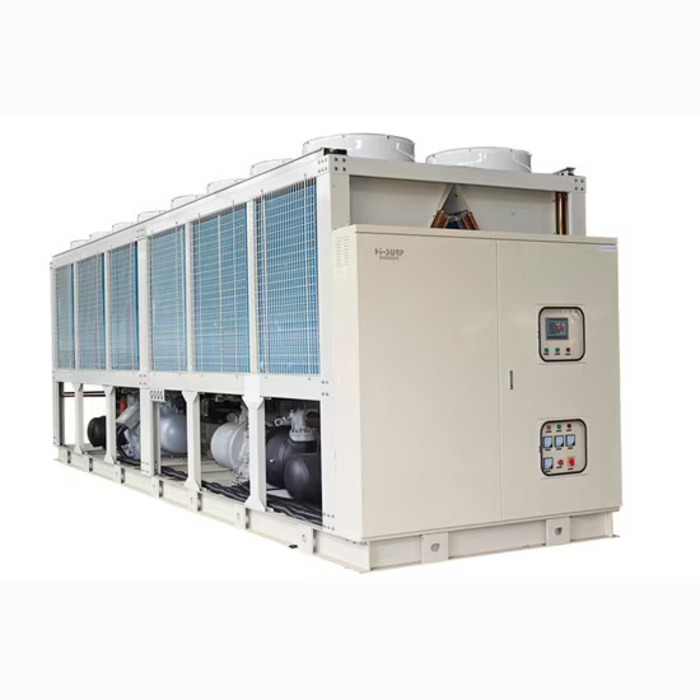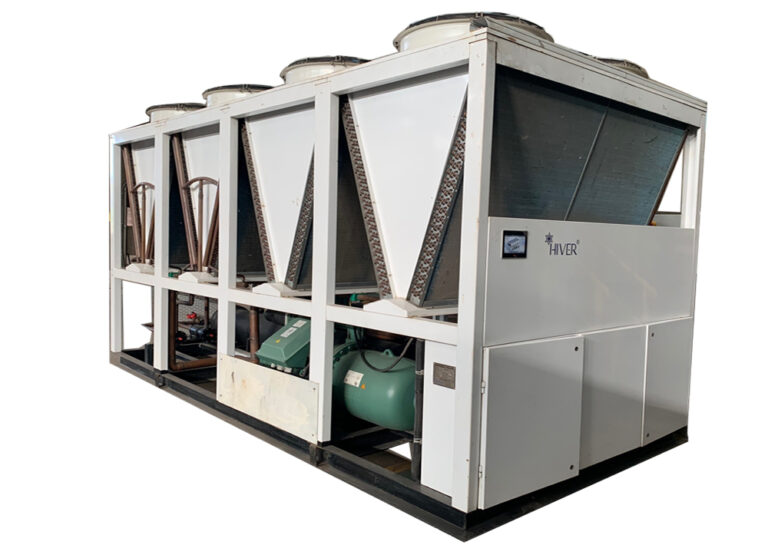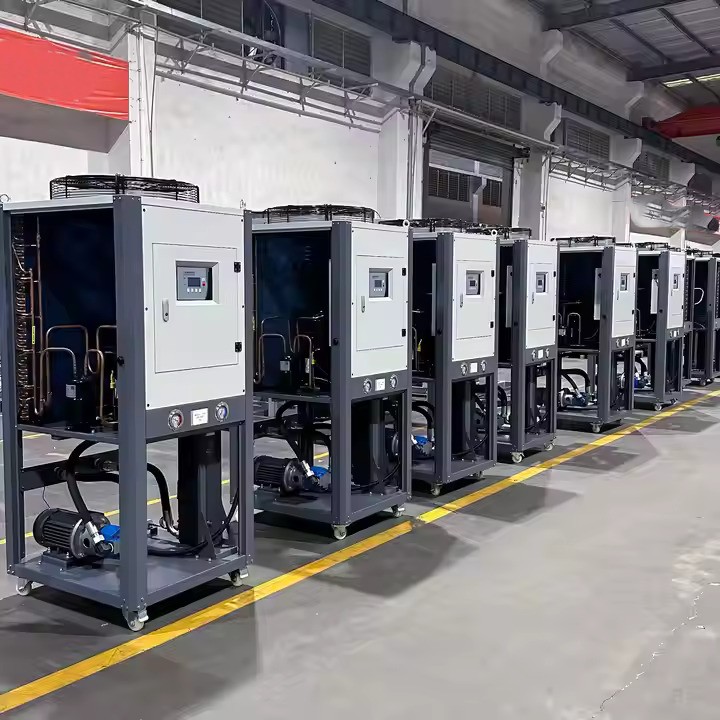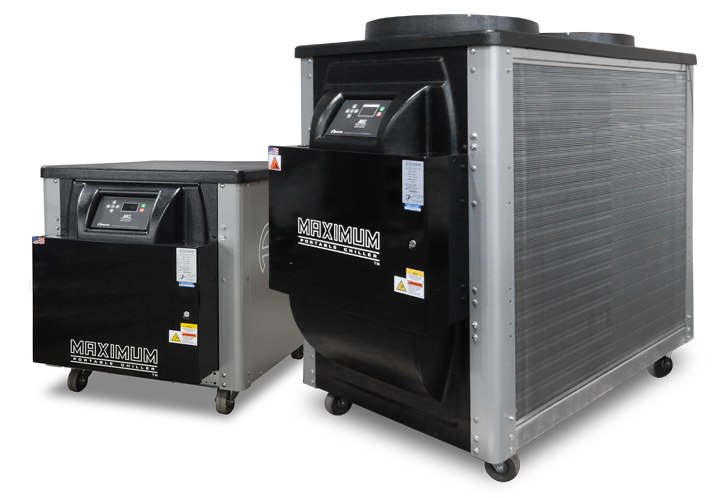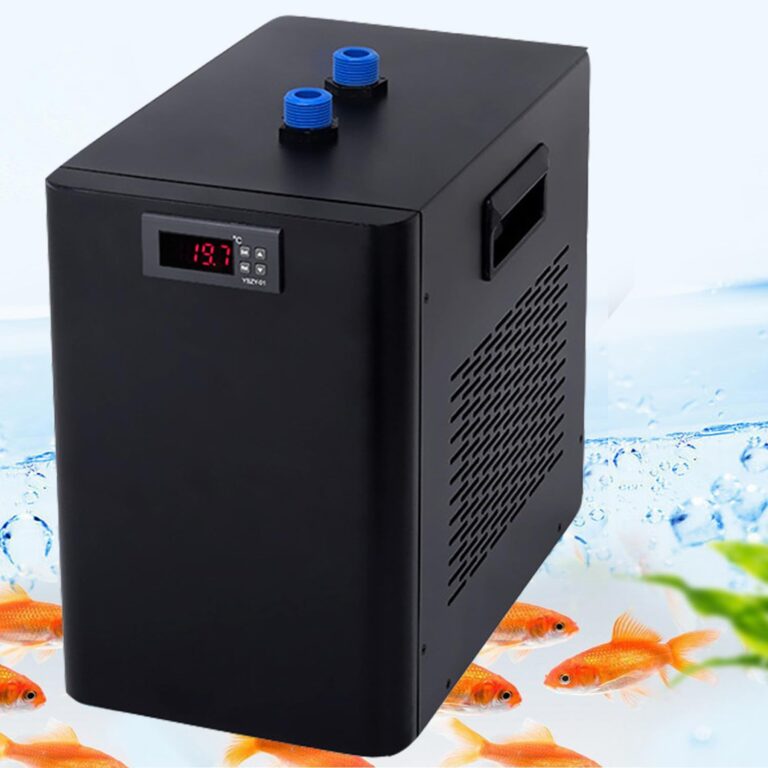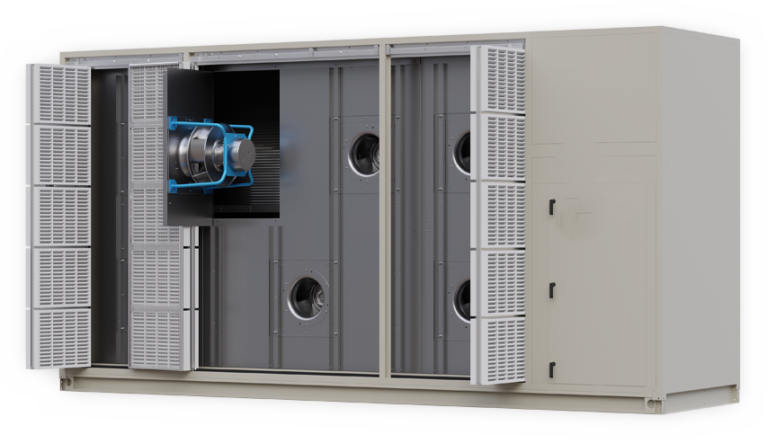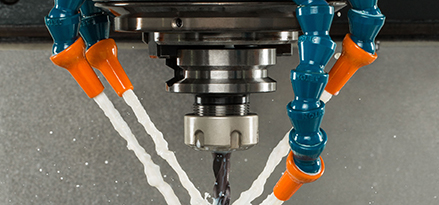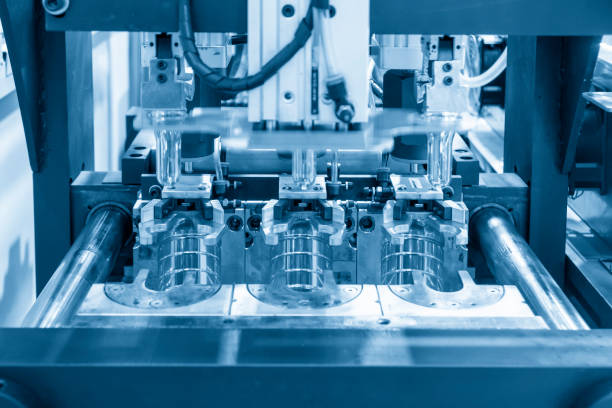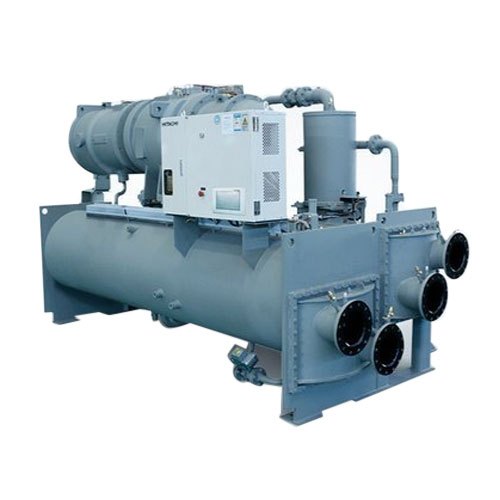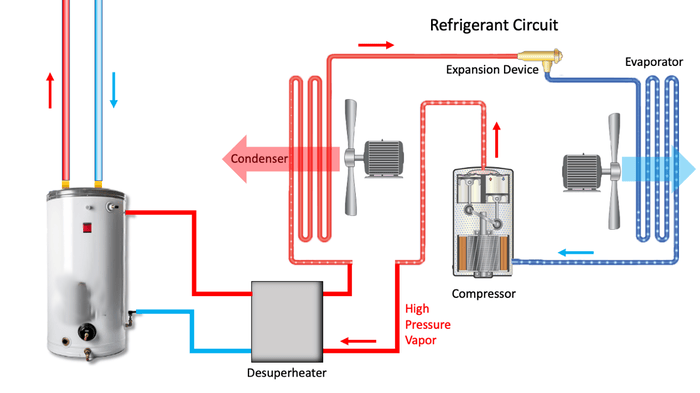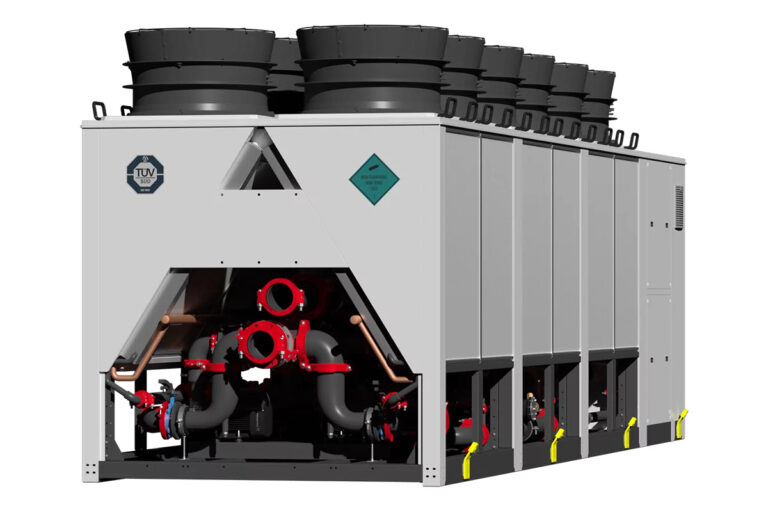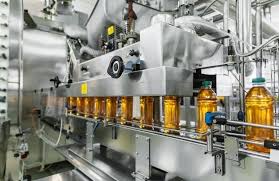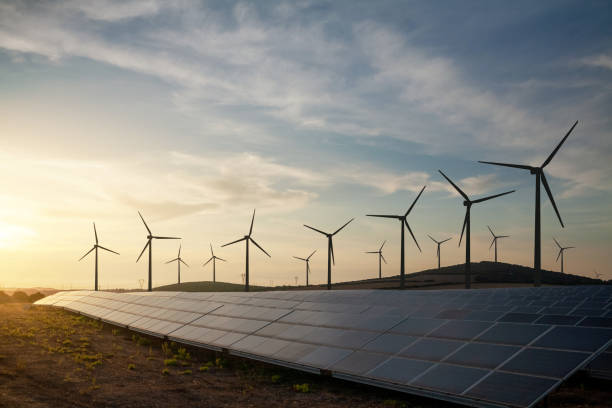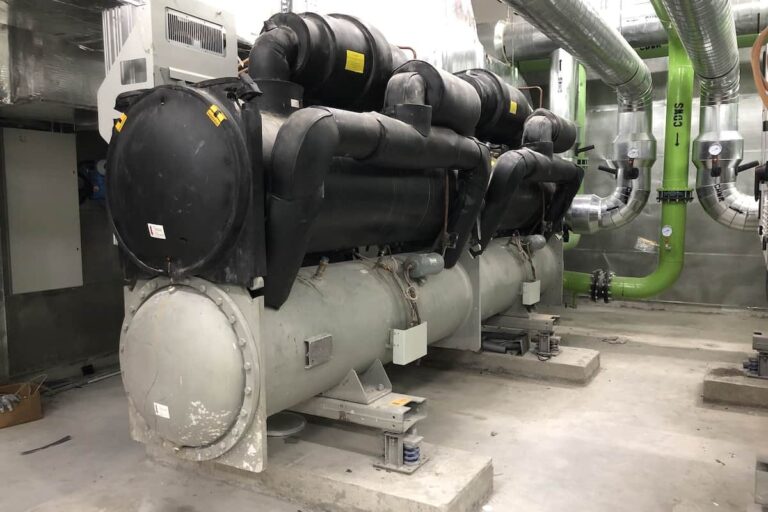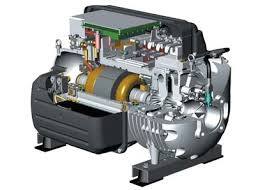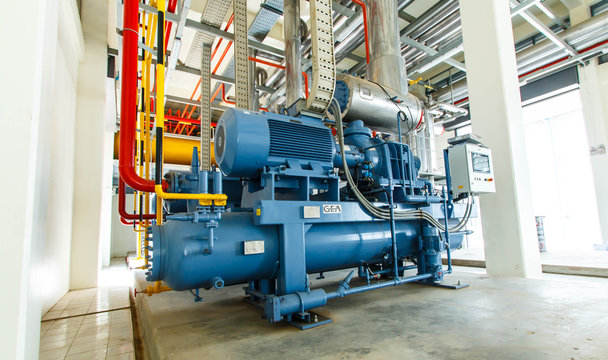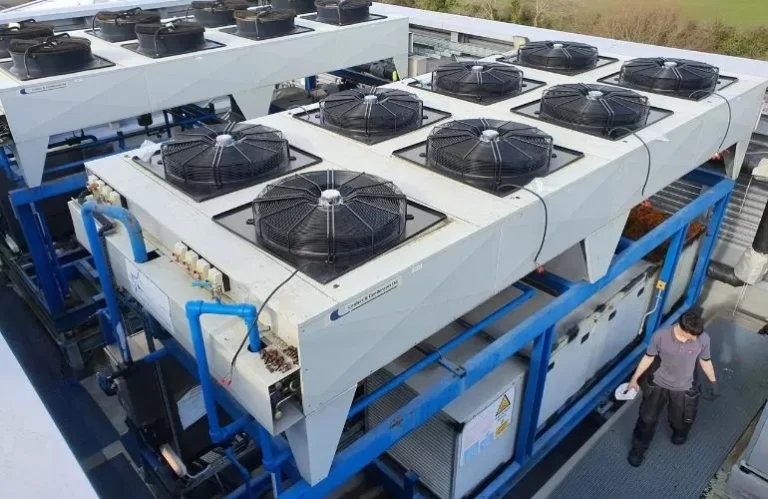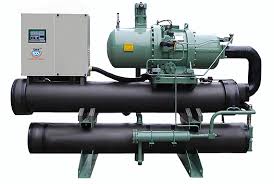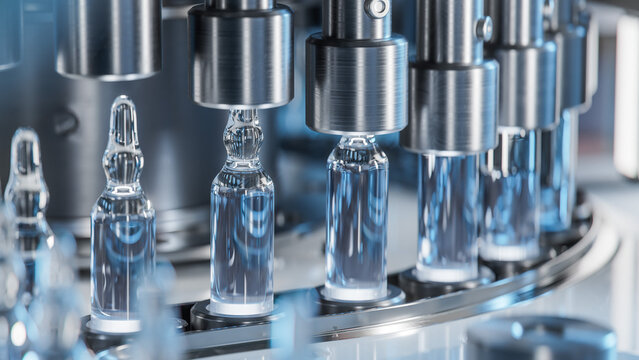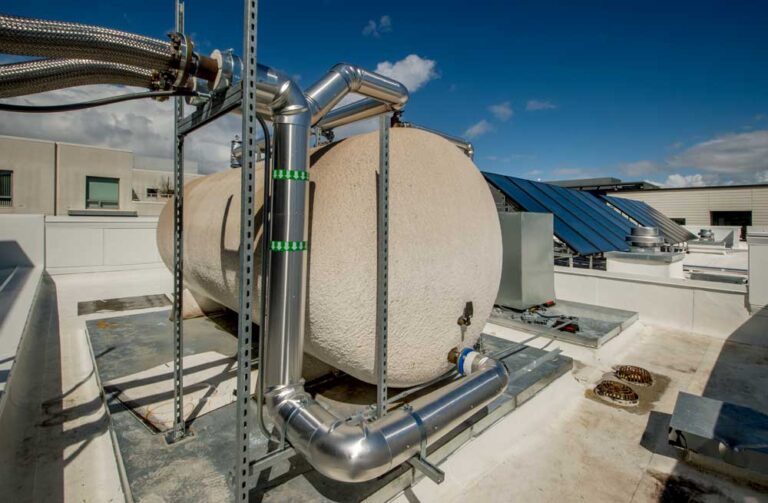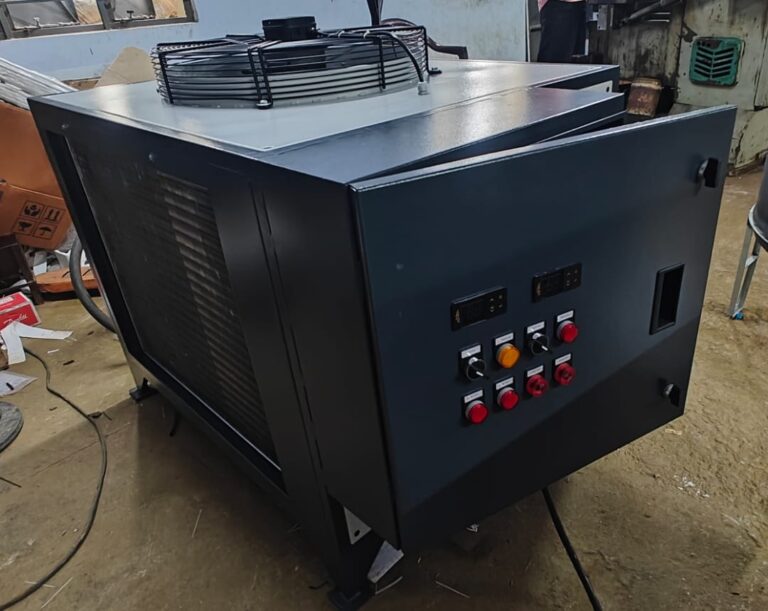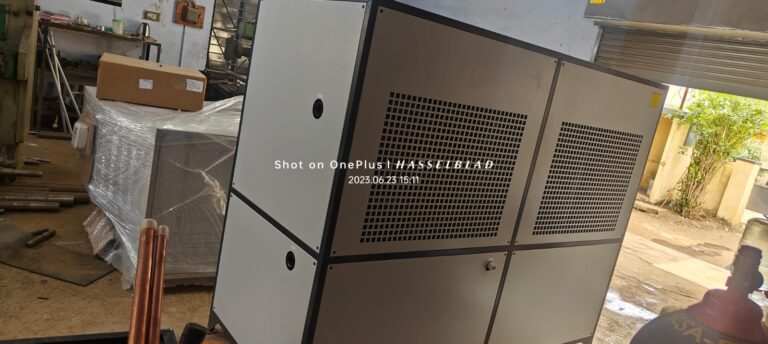Traditionally viewed as a simpler, more compact alternative to water-cooled systems, air-cooled chillers have evolved dramatically over the last decade. Today’s energy-efficient air-cooled chillers are no longer just basic machines mounted on rooftops.…
Characteristics of Air-Cooled Chillers
Air-cooled chillers are an integral component of many modern cooling systems, offering a reliable and efficient solution for a wide range of industrial, commercial, and institutional applications. Unlike water-cooled chillers, which rely on…
Hydraulic oil chiller for CNC
Introduction Hydraulic systems play a vital role in the operation of CNC (Computer Numerical Control) machines, providing the necessary power for precise movements and operations. However, maintaining the optimal temperature of the hydraulic…
Portable Water Chiller
What Are Portable Water Chillers? Portable water chillers are self-contained, mobile cooling units that use refrigeration technology to remove heat from water or water-based fluids. The cooled water is then circulated through industrial…
Fish Tank Water Chiller
Introduction Fish Tank Water Chiller is a specialized piece of equipment designed to regulate, stabilize, and maintain the ideal water temperature inside an aquarium. Temperature plays a vital role in the health and…
Chillers in Data Centers: Ensuring Optimal Cooling for IT Equipment
Introduction Data centers are the backbone of modern digital infrastructure, hosting servers, networking equipment, and storage devices that manage vast amounts of data. However, these electronic components generate a significant amount of heat,…
Metal working Operations rely on chillers to prevent overheating.
Introduction Metalworking is a high-precision industry where efficiency, durability, and product quality are paramount. However, one of the biggest challenges in metal fabrication processes is the excessive heat generated during machining, welding, and…
Importance of Chillers in the Plastics Industry
Introduction The plastics industry relies on precision and efficiency in manufacturing processes such as injection molding, blow molding, extrusion, thermoforming, and rotational molding. These processes involve heating plastic materials to high temperatures to…
Industrial High-Torque Chillers
Introduction Industrial high-torque chillers are advanced cooling systems designed to handle high-capacity and precision cooling for various industrial applications. These chillers are specifically engineered to manage the intense heat loads generated by heavy-duty…
High-Tonnage Water Chillers
Introduction High-tonnage water chillers are industrial-grade cooling systems designed to handle large-scale cooling demands in commercial, industrial, and process applications. These chillers have a cooling capacity ranging from hundreds to thousands of tons,…
Desuperheaters for Chillers
Introduction Desuperheaters are integral components in modern chiller systems, playing a pivotal role in improving their overall performance and efficiency. In refrigeration cycles, superheating occurs when the refrigerant gas, after being compressed, is…
Free Cooling Chillers
Introduction Free cooling chillers represent an innovative and sustainable solution to cooling challenges, particularly in industries and facilities where energy efficiency and cost savings are a priority. These chillers leverage naturally occurring cool…
Absorption Chillers
Introduction Absorption chillers are an advanced type of refrigeration system that utilizes thermal energy instead of electricity to generate cooling. These systems work by leveraging heat from various sources, such as steam, hot…
Ammonia Chillers
Introduction Ammonia chillers are a widely used type of industrial refrigeration system that utilizes ammonia (NH₃) as the primary refrigerant. Known for their high energy efficiency, environmental benefits, and excellent cooling capacity, ammonia…
Food and Beverage Industry
Introduction Food and Beverage Industry is one of the most dynamic sectors, where maintaining the freshness, quality, and safety of products is paramount. Chillers play a vital role in this industry by providing…
Chillers and Renewable Energy
Introduction Chillers and Renewable Energy as the demand for energy-efficient and eco-friendly solutions grows, integrating renewable energy sources like solar and wind power into chiller systems has emerged as a game-changer. Traditionally reliant…
Dynamic Load Balancing in Chillers
Introduction Dynamic load balancing in Chillers plays a crucial role in this by intelligently distributing cooling demand across multiple chillers, ensuring that no single unit is overburdened while others remain underutilized. By leveraging…
Chiller Energy Audits
Introduction Chiller energy audits are essential evaluations aimed at assessing the performance and energy consumption of chiller systems used in industrial and commercial settings. These audits are pivotal in identifying inefficiencies, enhancing operational…
Magnetic Bearing Chillers
Introduction Magnetic bearing chillers are revolutionizing the HVAC and industrial cooling sectors by offering unprecedented levels of energy efficiency and reliability. Traditional chillers rely on mechanical bearings, which suffer from friction and wear…
Chiller Compressor
Introduction Chiller Compressor is the heart of any chiller system, responsible for compressing the refrigerant and enabling efficient heat exchange to provide the desired cooling effect. The type of compressor chosen can significantly…
Hydraulic Oil Chillers: Selection Guide for Heavy Machinery
Introduction Hydraulic oil chillers are crucial components in industrial machinery, especially in sectors like construction, mining, and manufacturing, where equipment operates under intense conditions for prolonged periods. Hydraulic systems generate significant heat during…
Chiller Maintenance for the Chemical Processing Industry
Introduction In the chemical processing industry, chillers play a crucial role in maintaining optimal temperatures for various chemical reactions, preserving product quality, and ensuring equipment reliability. To keep chillers running efficiently and avoid…
A Guide to Selecting the Best Chiller for Pharmaceutical Production
Introduction In pharmaceutical production, maintaining precise temperature control is essential for ensuring the quality, safety, and efficacy of medicines and other pharmaceutical products. Chillers play a critical role in this process, providing reliable…
Glycol Chiller-“Step-by-Step Guide to Selecting Glycol Chillers for Breweries and Distilleries”
Introduction In breweries and distilleries, maintaining precise temperature control is critical for ensuring the quality and consistency of the final product. From fermentation to wort cooling, each stage of the brewing and distilling…
Dairy Chiller Selection Guide
Dairy Chiller Selection Guide Selecting the correct chiller for dairy processing applications is crucial for maintaining item quality, ensuring nourishment security, and optimizing energy efficiency. Dairy Chiller Selection Guide, Here's a direct to…
Chiller Maintenance Tips for Laser Cooling Systems
Chiller Maintenance Tips for Laser Cooling Systems Maintaining a chiller utilized in laser cooling systems is fundamental for guaranteeing ideal performance, reliability, and life span of both the chiller and the laser gear…

